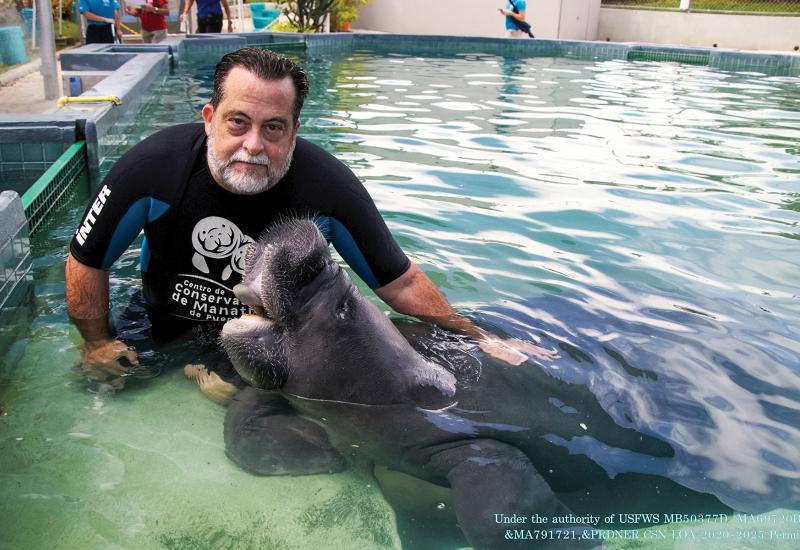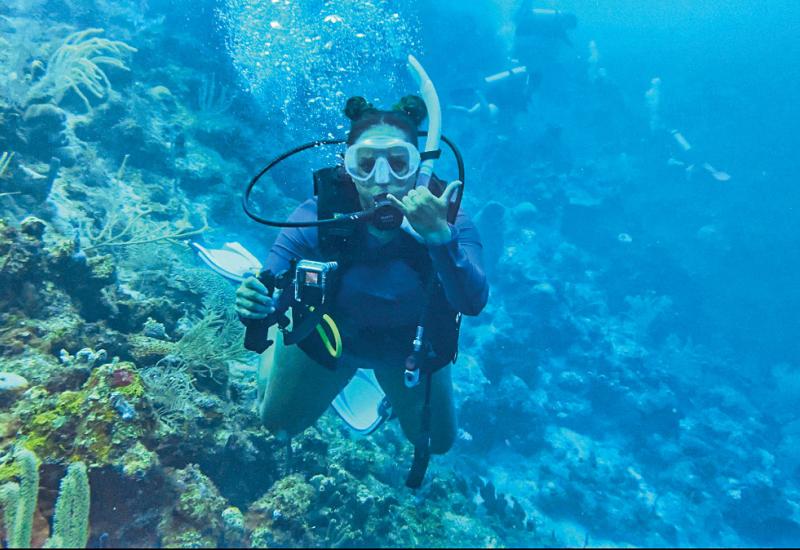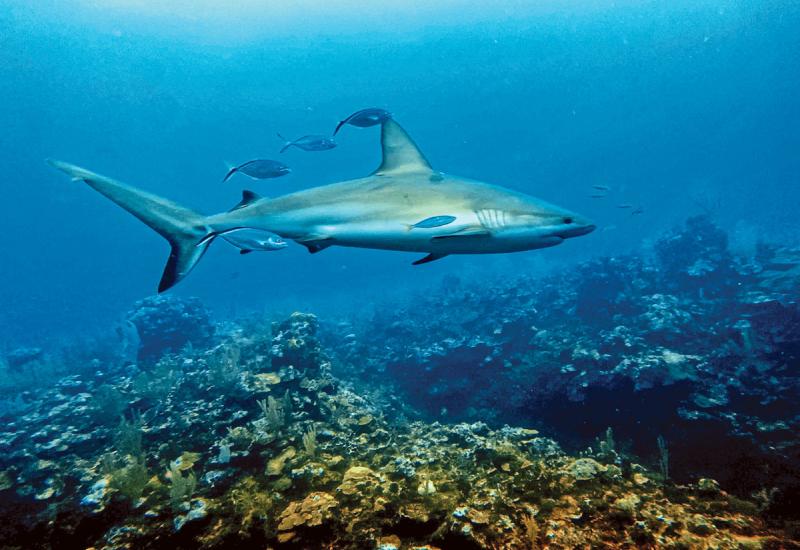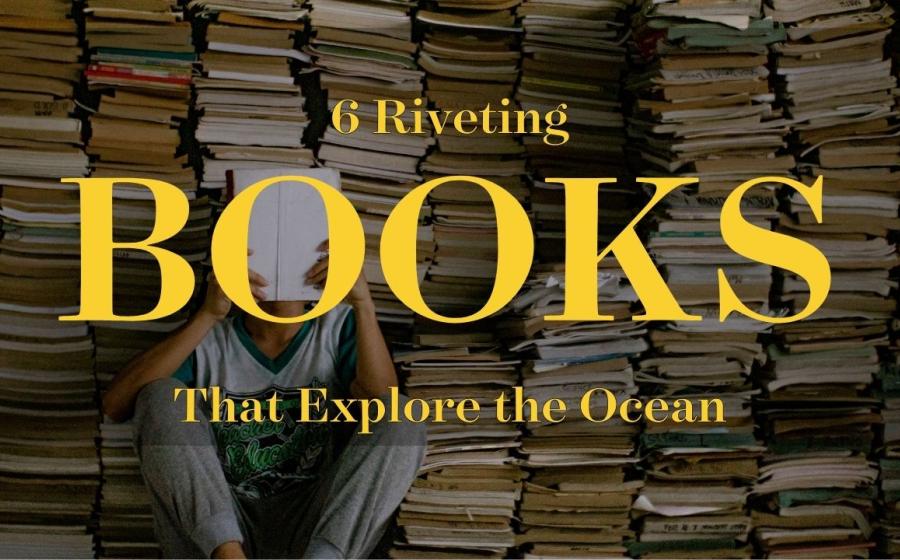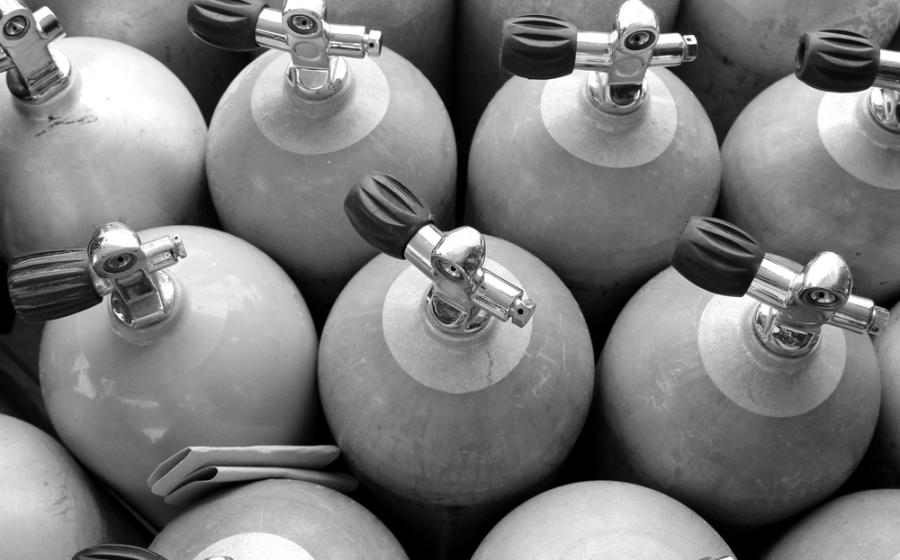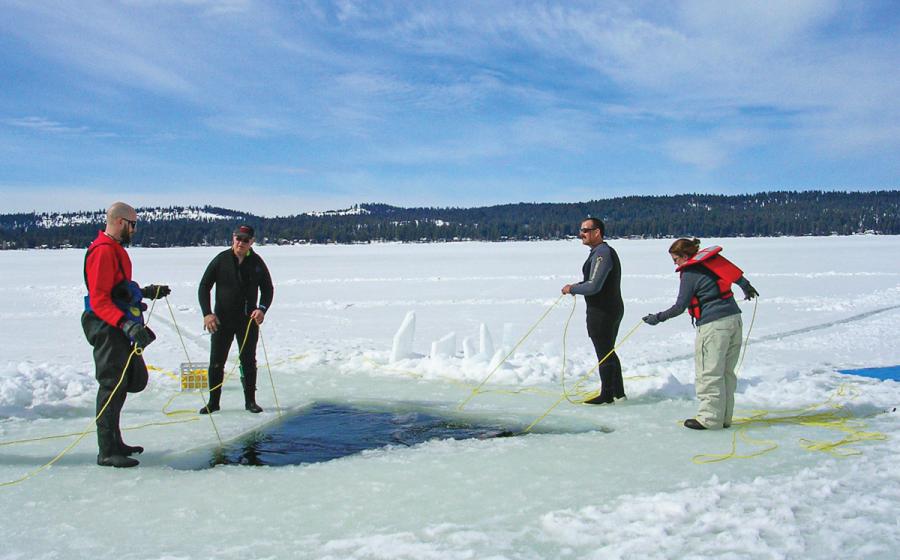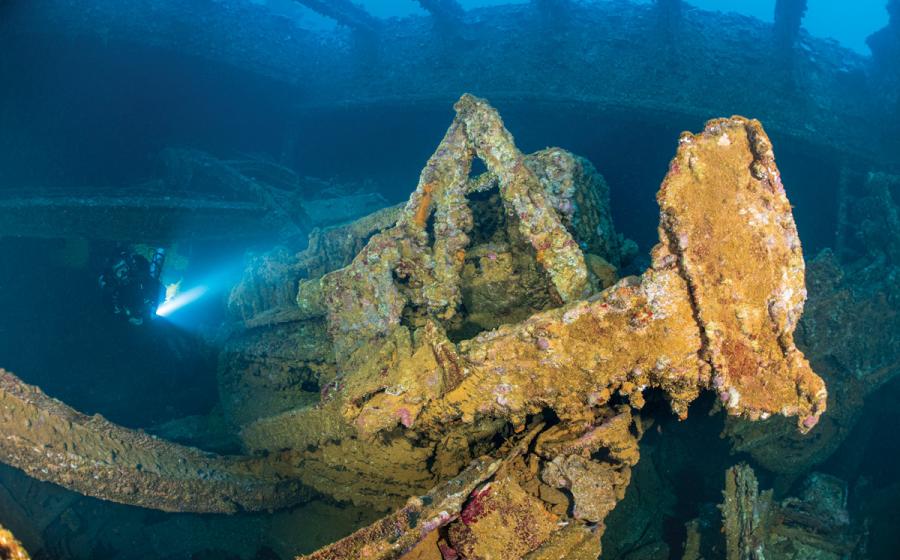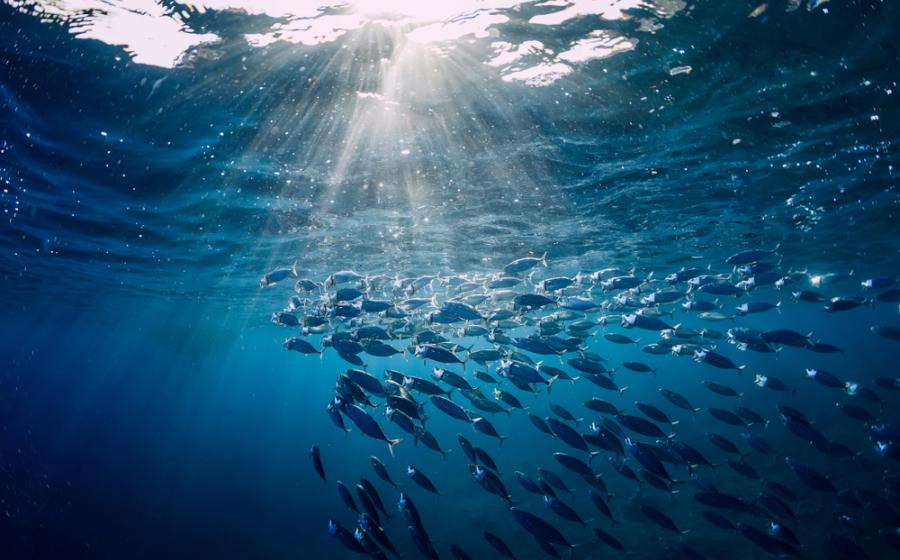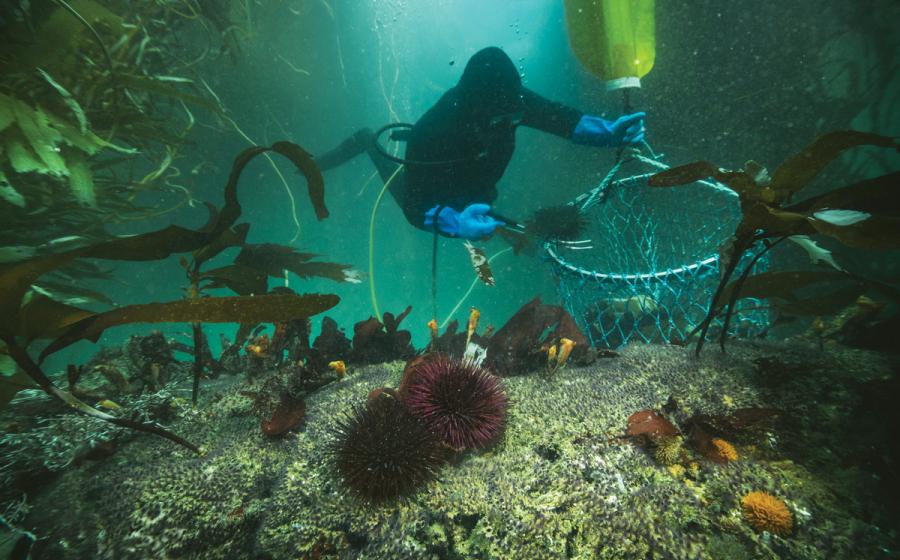Life Gets Stressful; Diving Can Help

Tiffany Duong/Ocean RebelsNorway’s beautiful fjords and the whales that live in them helped me meet and bond with some of my closest friends.
With holiday errands, family obligations, crowds, houseguests and relatives, the holidays are a notoriously stressful period. Alongside this, feelings of loneliness and isolation are also common towards year-end. Indeed, stress is an inevitable part of being human; how we manage it, however, can help us minimize the negative effects of it. Scuba diving can certainly help.
What Is Stress and How Does It Affect You?
The World Health Organization (WHO) defines stress as a state of worry or mental tension caused by a difficult situation. It is our body’s automated response to pressure. Commonly referred to as our “fight or flight response,” stress prompts us to address challenges and threats in our lives, WHO reported.
Causes of stress vary greatly and can include anything from chronic illness/injury to emotional challenges like grief, depression, guilt and low self-esteem. External events, like natural disasters, traumatic events or unforeseen challenges can also produce stress responses, as can threats of violence against ourselves or loved ones.
Moreover, prolonged and constant feelings of stress can have detrimental effects on our minds and bodies. Failure to manage stress can lead to “chronic stress” and life-threatening problems, like hypertension, heart diseases, weight gain, sleep problems, decreased immunity, loss of sociability and decreased mental vitality, according to National Today and OneWell.
Related Reading: ASK DAN: How Can I Minimize My Decompression Stress?

Tiffany Duong/Ocean RebelsA diver practices deep breathing (and playing) by making air bubble rings at depth.
How Scuba Diving Can Help You Manage Stress
There are myriad techniques you can use to reduce the negative impacts of stress. The Centers for Disease Control and Prevention (CDC) offers healthy ways to cope with stress; scuba diving achieves many of these!
1.Breathe
According to both the CDC and Harvard Medical School,focusing on breathing is the most important relaxation technique to reduce stress. The latter recommends long, slow, deep breaths to “gently disengage your mind from distracting thoughts and sensations.”
Ideal breathing techniques for scuba diving are similar, though in the water, they’re meant to reduce air use and extend your dive time. While diving, deep breathing optimizes gas exchange in the lungs, and lung health can improve bottom time for divers and freedivers alike. These breaths involve filling your lungs from the bottom and emptying them from the top. This is sometimes called “belly breathing” because you extend your diaphragm out first, before the chest.
Because these deep breaths still have the effects touted by the medical professionals above, an unintended benefit of taking deep “scuba” breaths is also stress relief. When you regulate your breathing rate while diving or on the surface, you remind your mind and body to come back to its center and calm.
2.Exercise
The CDC also encourages regular exercise as one of the most important and powerful stress-management tools, especially when combined with healthy eating and sleeping habits.
Scuba diving is a great way to move our bodies. In fact, it’s estimated that diving can burn 400–700 calories per hour! Water acts as resistance, requiring increased energy demand and movement to overcome. Conditions like water temperature, currents and strain during the dive affect this.
Regardless, scuba diving still provides a full-body workout that combines cardio and strength training, without as much of the joint strains of land-based exercise. As a bonus, you’re often enjoying the scenery so much that you forget you’re working out.
Related Reading: ASK DAN: How Does Heart Health Impact My Diving?
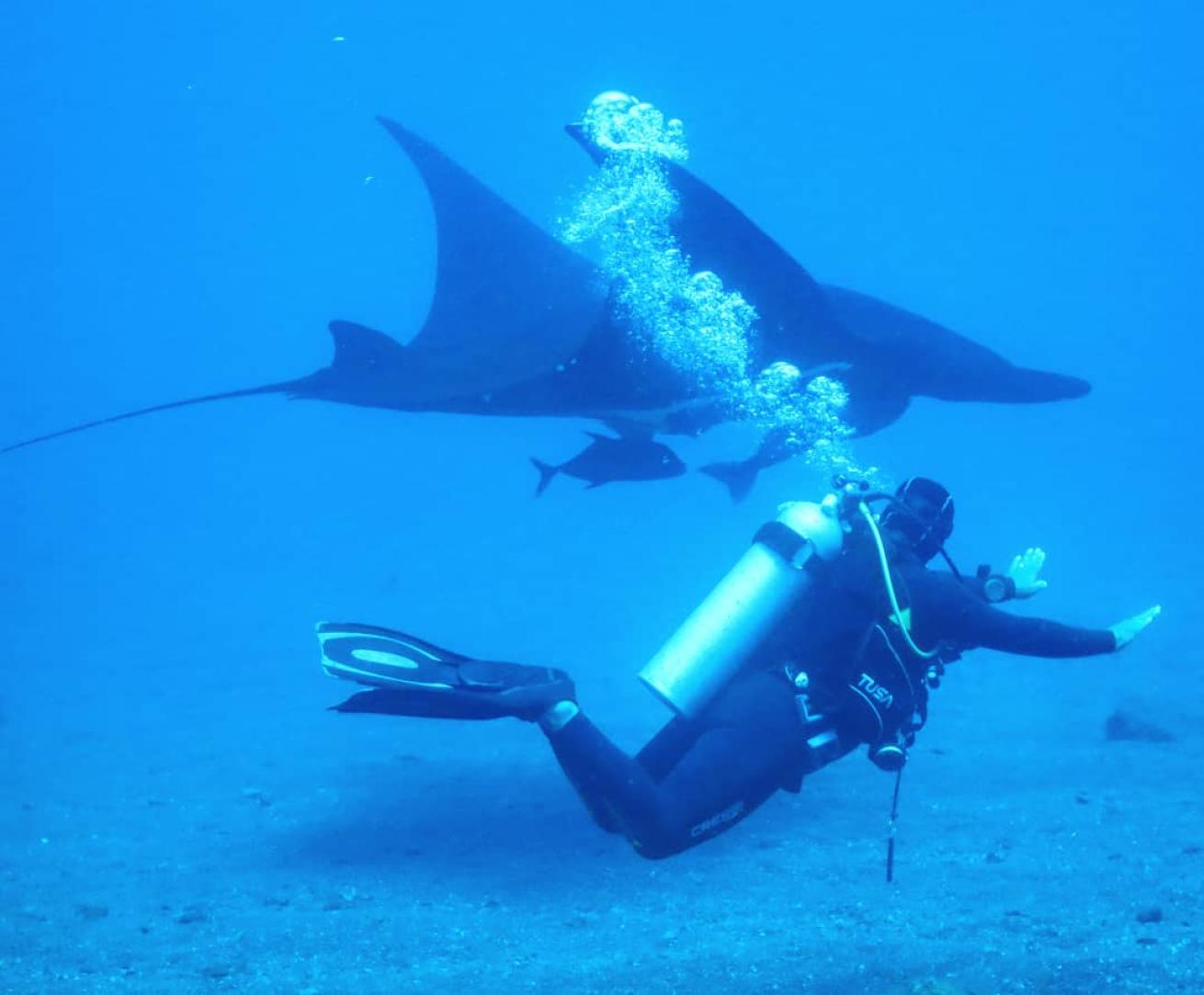
Tiffany Duong/Ocean RebelsA divemaster swims along with a majestic manta in the Socorro Islands, forming a beautiful connection with the ocean.
3.Unplug
Important for stress management, scuba diving gives you time away from “the real world” and your screens. The CDC recommends taking breaks from the news and social media because repeated exposure to crisis and intense imagery can disrupt emotional health. Instead, the CDC recommends doing enjoyable activities like scuba diving, and checking for updates between breaks.
“Diving is one of the few activities that allow us to fully disconnect from our topside world of work, family, etcetera, and connect with a new underwater world,” said Ashley Levy, PADI’s senior manager at global performance marketing. “Our brains turn off to many of the stresses and pressures we have in the world above. No phones/computers, no alerts/alarms, no voices, little sound. It is peaceful and relaxing.”
By disconnecting from the seemingly endless inputs and alerts you receive daily, you’re able to reconnect with nature and ourselves.
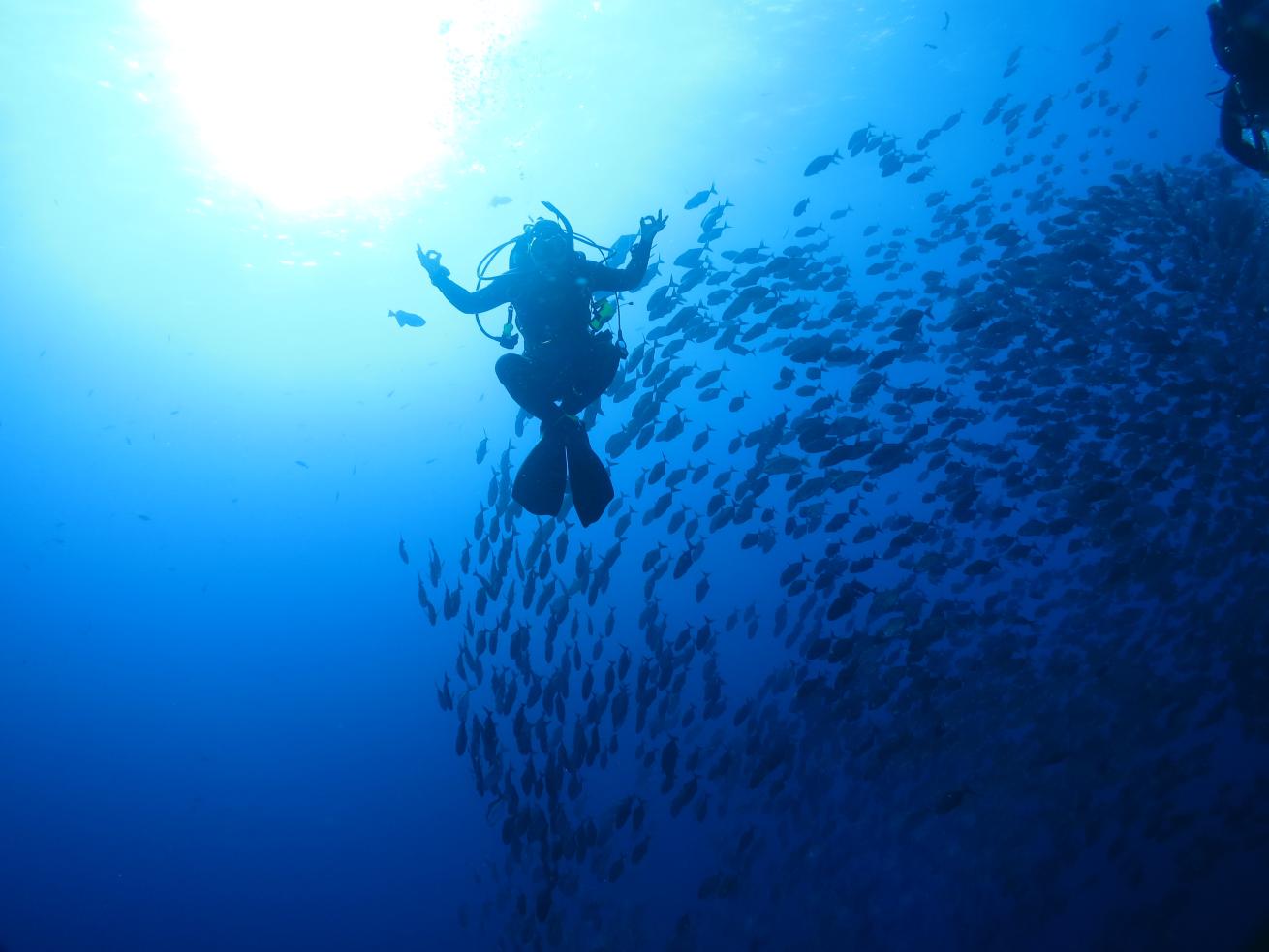
Tiffany Duong/Ocean RebelsFor me, diving is a very relaxing and meditative activity that brings my mind, body, and spirit into balance.
4.Meditate
According to the CDC, meditation helps you focus your attention and quiet jumbled thoughts that might be circling in your mind, causing stress. This balance can improve both your emotional well-being and overall health.
Yoga is often called a “moving meditation” because the mind, breath and body become synchronized through movement, resulting in a meditative state. This brings peace and reduces stress.
For me, scuba diving has the same effect as a great yoga session. Being underwater forces my mind to pay attention to my environment to stay safe. As a consequence, I’m fully present in the moment with my body and breath.
The switch feels instantaneous whenever I hit the water; everything else melts away, and I forget that there’s anything but diving. It’s always a magical experience that leaves me calmer and happier: a moving meditation.
Related Reading: The Art of Breathing Underwater
5.Engage
Scuba diving also helps you reduce stress by providing you with a community—something the CDC recommends for healthy stress management. It’s tempting to isolate yourself when you’re stressed and irritable. However, this tends to be the opposite of what you need.
Diving provides us with meaningful ways to connect that don’t involve screens. There’s nothing like the laughter and smiles shared on a dive boat after a great day in the water. The social chemistry changes; nobody can stop talking and connecting about what they just shared.
My own dive community helps me personally and professionally every day and contributes to my overall happiness.
Keep Diving to Manage Stress
So, scuba diving is a fun and healthy addition to your life that can help to manage and minimize your stress and build a happier life. During these awareness days, the needs we identify and the practices we embrace can help us to live more balanced and healthy lives throughout the rest of the year. So, when are we going diving?

